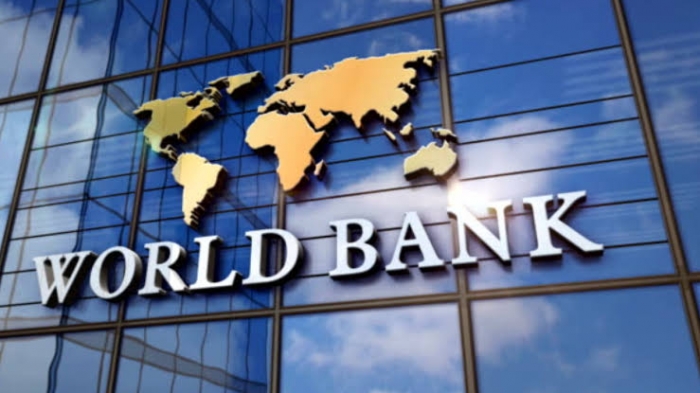Nigeria has been listed by the World Bank among 39 countries where conflict and insecurity are driving poverty and hunger to alarming new heights — a grim designation that underscores the dire reality on the ground, where more than 10,000 Nigerians have been killed in violent attacks during President Bola Tinubu’s first two years in office.
A new World Bank report released Friday paints a bleak picture: these 39 economies — which include Afghanistan, Libya, Sudan, Ukraine, and Nigeria — are now home to 421 million people living on less than $3 a day, more than in the rest of the world combined. That figure is projected to rise to 435 million by 2030, accounting for nearly 60% of the world’s extreme poor. Unlike other developing countries, these conflict-affected states have seen their per capita GDP shrink by an average of 1.8% annually since 2020, even as it grew by 2.9% elsewhere.
“More than 70 percent of people suffering from conflict and instability are Africans. Half of the countries facing conflict today have been trapped in these conditions for over 15 years,” warned Indermit Gill, the World Bank Group’s chief economist. “Misery on this scale is inevitably contagious.”
Nigeria’s place on this grim list is tragically well justified by data from Amnesty International, which reveals that at least 10,217 people were killed by armed groups and bandits across seven Nigerian states between May 2023 and May 2025 — the first two years of Tinubu’s presidency. The worst affected was Benue State, with 6,896 deaths, followed by Plateau State with 2,630 killed.
The security situation has grown even more complex with the emergence of new armed groups like Lakurawa in Sokoto and Kebbi states and Mamuda in Kwara, adding to long-standing threats such as Boko Haram. Amnesty’s investigation shows entire communities are under siege: in Zamfara alone, 481 villages have been completely destroyed, and 529 remain under the control of criminal gangs. Daily attacks are now so common in parts of the state that multiple incidents often occur within 24 hours.
The violence is also systematically dismantling essential infrastructure. In Benue, attackers have destroyed boreholes, health clinics, schools, and grain reserves across all 23 local government areas, with 148 villages wiped out in just seven. Meanwhile, April attacks in Plateau State saw entire families slaughtered, including children, as coordinated assaults targeted multiple communities simultaneously.
The fallout is a spiraling humanitarian disaster. Over 515,000 people have been displaced — 450,000 in Benue alone — with many forced to move repeatedly as even schools and displacement camps come under attack. Agriculture, the backbone of rural economies, is in collapse. In Zamfara’s Dangulbi district, sweet potato harvests rot in fields because farmers are too terrified to transport their produce to market. Many now beg to survive.
Beyond the killings and kidnappings, bandits impose a reign of economic terror by demanding tribute payments from villagers under threat of death, extorting communities already struggling to survive. As one resident in Zamfara’s Maru local government lamented, “The only relationship between us and the government is that they issue statements after we are attacked. When the next attack comes, they will issue another statement, while the bandits continue.”
Amnesty International has accused the Nigerian government of failing in its international legal obligations to protect citizens and ensure justice. The organization warned that without urgent, decisive action to halt the violence and hold perpetrators accountable, Nigeria’s crisis will deepen — feeding precisely the vicious cycle of conflict and poverty that the World Bank says is pushing millions across Africa and beyond into desperate conditions.
This dual indictment by both global economic experts and human rights monitors highlights just how severe and entrenched Nigeria’s challenges have become — and why, without immediate and meaningful intervention, the country risks sliding even further into a humanitarian and economic abyss.
